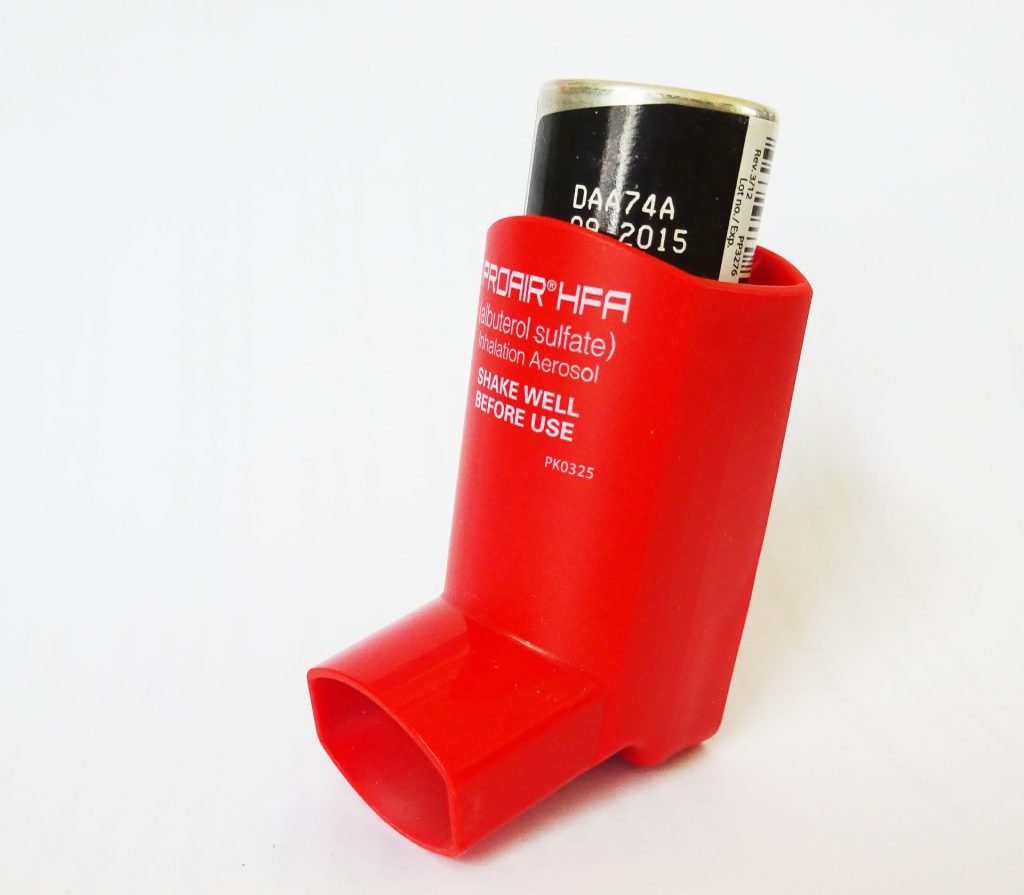
Asthma is a very common condition. In fact, an estimated one in 12 people has asthma¹. Unfortunately, this condition is chronic and has no known cure.
While there is no cure, that’s not to say asthma can’t be treated and managed so that it doesn’t have a serious impact on your daily life.
There are a variety of treatments available which aim to control asthma as best as possible.
Many of these asthma treatments are effective at minimizing the effects of asthma, such as coughing, shortness of breath, and other side effects.
Here are a few of the most popular, effective asthma treatments available.
Long-Term vs. Quick-Relief
Before getting into the different treatments that are available, you should understand that there are two main types of treatments: long-term and quick-relief.
Long-Term Asthma Treatment
Long-term asthma treatments work by reducing airway inflammation. In doing so, these medications help prevent symptoms from developing.
The most common long-term treatments are inhaled corticosteroids, which reduce inflammation and sensitivity to other substances you may inhale.
There are other long-term treatments, most of which accomplish the same thing — reduced inflammation.
Quick-Relief Asthma Treatment
Quick-relief medications can provide relief when asthma symptoms are severe.
Inhalers are a popular quick-relief treatment. When your asthma symptoms flare up, these work to relax the airway and make breathing easier.
Popular Treatment Options
Typically, to find a treatment that works for you, you’ll work with your primary physician to create a personal action plan. It is recommended to consult a doctor to develop a plan that’s right for you.
Below are some of the treatments the UK National Health Service lists to treat asthma².
Inhalers
There are reliever inhalers, which help relieve symptoms as they arise, and preventer inhalers, which help prevent symptoms from developing.
Nearly anyone who has asthma will be given a reliever inhaler by their physician. This will help you reduce the severity of symptoms as they flare up. These inhalers are typically able to relieve symptoms within a few minutes.
Preventer inhalers are usually given to individuals who experience symptoms from asthma on a regular basis. If you find yourself using a reliever inhaler often, you may need a preventer inhaler.
There are also combination inhalers which provide both relief and preventative treatment.
Tablets
If your inhaler doesn’t control your symptoms, you may need to take tablet treatments, which could include:
- Leukotriene receptor antagonists (LTRAs)
- Theophylline
- Steroid tablets
Aside from inhalers and tablets, there are other treatments which involve surgery or injections. However, most cases of asthma do not require these treatments.
Finding the Right Treatment
Ultimately, finding the right asthma treatment for you comes down to consulting with your physician and creating a treatment plan.
You should talk to your doctor about what symptoms you are experiencing and which treatments you have or have not tried.
Once a treatment plan has been established, it makes sense to search online and compare the costs of medications to find the treatment plan that works best for you and is affordable.



